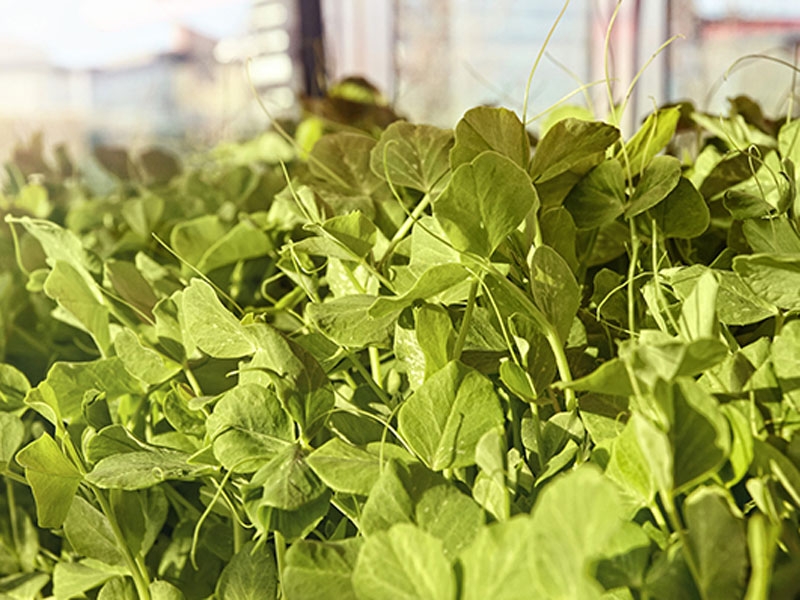Sustainability in the realm of food-and-beverage is a growing trend among hotels. The sheer number of properties and number of meals served each day mean that any moves made can have an immediate—and meaningful—impact.
The latest move in the sustainable F&B process comes from InterContinental Hotels Group, which this week reinforced its commitment to the sustainable sourcing of food served at IHG-branded hotels globally, specifically with regards to cage-free eggs.
IHG has worked with The Humane League, a leading farm animal protection non-profit organization based in the US to commit to sourcing 100-percent cage-free eggs throughout its U.S., Canadian and European operations no later than 2022. This is part of an overall goal to source only cage-free eggs across our entire global estate by 2025 and will contribute to IHG’s broader Responsible Business agenda, which already encourages hotels to use environmentally friendly and locally sourced products and services.
“As a global business with a presence in nearly 100 countries, we have a huge opportunity to make a real and positive impact by sourcing food items sustainably,” said Paul Snyder, VP of corporate responsibility – environmental sustainability for IHG said in a release. “The long-term commitment we are making around cage-free eggs provides further evidence of this and is an extremely important addition to our wider Responsible Business agenda. Working with our partners, we look forward to encouraging supply chains around the world to increase the availability of cage-free eggs, so that our hotels can fulfill our ambition.”
Sustainable Fish
Hilton Worldwide announced last year that it is the first global hotel company to serve Marine Stewardship Council eco-labeled and certified cod in its restaurants in 41 properties across the U.K., Netherlands and Belgium. These properties have achieved MSC chain of custody certified status, and Hilton’s 41 remaining luxury and full-service owned, leased and managed properties in these countries are on track to receive MSC chain of custody certification by 2017.
Sea Food month has started and we'll provide you amazing plates prepared with sustainable-caught fish. #HiltonLovesFish #seafoodweek #Hotel pic.twitter.com/ThRx3acj3t
— London Syon Park (@HiltonSyonPark) October 3, 2016
This step is part of Hilton’s strategy toward more responsible and sustainable sourcing around the world. In 2014, the company implemented a shark fin ban across all restaurants and F&B facilities globally.
IHG’s new commitment around cage-free eggs builds on the 2015 launch of the company’s comprehensive Sustainable Seafood Policy, which applies to all IHG-branded hotels globally.
Fighting Food Waste
AccorHotels, which includes the Pullman, Sofitel, Novotel, Mercure and Ibis chains, intends to “reduce food waste by 30 percent, in particular by sourcing food locally,” chief executive Sebastien Bazin said earlier this year.
The French group, which generates 25 percent to 30 percent of its revenue by serving 150 million meals a year, will first work out how much food it is wasting.

Its restaurants will be required to weigh and record food that is thrown away in order to best determine how to cut waste.
Amir Nahai, who leads Accor’s food operations, said that menus currently offering up to 40 main courses would slimmed down.
“In the future we’re going to have menus with 10, 15 or 20 main courses, with more local products,” he said.
The group also intends to plant vegetable gardens in more than 1,000 of its 3,900 hotels by 2020.
Sustainable and Local
Shangri-La Hotels & Resorts also features a global F&B program aimed at promoting sustainable ingredients and local produce.
The ‘Rooted in Nature’ program launched in 2015 with a month-long series of initiatives designed to highlight the best local ingredients at its portfolio of hotels.
Dishes included herbs grown on hotel grounds, locally-sourced organic vegetables and fruits, line-caught fish, free range poultry and beef, and honey from a hotel’s own beehive.
As well as the drive towards local and sustainable produce, Shangri-La also sources ingredients that are free of chemical pesticides, caught or killed in an ethical manner, and those that provide benefits to indigenous suppliers.
